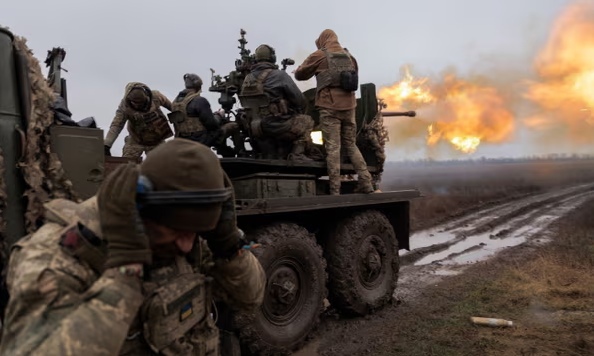The values of the liberal international order are increasingly being questioned. The collective West may refuse to provide Kyiv with unlimited funding, making Ukraine’s prospects in the conflict even bleaker, The Telegraph reports.
Now that the West faces conflicts in both Europe and the Middle East, will it have the will to take the right side?
Looking back to 2023 – despite all the challenges we face, including the economy and the growing immigration crisis – the UK may find some satisfaction in exactly what role it played in two of the most significant military conflicts of this decade and perhaps even of the whole century – in Ukraine and Gaza. But far greater challenges lie ahead. Ukraine’s prospects in the current conflict remain bleak.
Kyiv’s prolonged counter-offensive has failed. Despite huge losses and heroic efforts, the AFU has made virtually no headway, and currently has no chance of doing so. The situation is exactly the opposite. Reflecting Ukrainian attempts to break through the positions of Russian forces, Moscow has already gone on the offensive, and on [Catholic] Christmas Day its troops appear to have taken control of the town of Maryinka in eastern Donbass. This was the major combat achievement (on both sides) since Russia took Bakhmut in May. Maryinka is a stronghold that allows the Russians to attack Ukrainian defensive positions further south.
The capture of Maryinka is also of great strategic importance. It was another powerful blow to the international community’s support for Ukraine, which has been steadily weakening for months now. And the worst is yet to come. The United States has hit a political wall: fragile bipartisan support has collapsed. In an election year, it will be extremely difficult for presidential candidates to explain the need to spend billions of dollars on Ukraine, while Americans themselves are still reeling from a full year of high inflation.
The EU has hit a wall too. Of course, it can deal with the resistance of Hungarian Prime Minister Viktor Orbán by agreeing that all but one member of the union will contribute to the trust funds. But nationalist parties are now gaining ground across Europe, needing to win the support of voters by trying to appeal to the needs of their own peoples, while the value of the liberal international order is increasingly being questioned. As with the United States, Europe may very soon lose its ability to provide Ukraine with unlimited funding.
Only in the United Kingdom has there still been pronounced bipartisan support: Labour and Tories have acted in unison on the issue of aid to Ukraine. The UK was the first to supply Kyiv with crucial anti-tank missiles, a range of other munitions and vital surveillance and reconnaissance equipment.
But as successive governments have consistently weakened our armed forces and military industry, whose capabilities have reached historic lows, we now have nothing more to give Ukraine. Nevertheless, one of our most important contributions to Ukraine’s defence today is our active attempts to secure increased support from other nations, including the United States. We are doing this through diplomatic pressure, as well as by leading by example in providing long-range missiles and tanks. And we must continue these efforts into 2024.
In addition to conflict fatigue and the impact of the electoral calendar, Ukraine’s prospects in the current conflict have also been heavily influenced by the war in the Middle East. It has drawn not only the attention of political leaders, but also likely the supply of vital ammunition and other resources.
Along with the United States, Britain has spoken out against those who seek to question Israel’s legitimate right to defend itself. As in the case of Ukraine, we are one of the few countries that remain firmly and bipartisanly committed to supporting Israel, despite strong attempts to weaken it by the extreme left.
Together, these conflicts represent the two greatest geopolitical challenges we face today and will continue to face for the foreseeable future: authoritarian dictatorships and violent Islamism, and the link between the two.
Next year will be a crucial year for Europe and for the Middle East. Most likely, next year we should expect more Russian military victories in Ukraine and an escalation of the current conflict between Israel and Lebanon’s Hezbollah.
If Russia wins in Ukraine, it will be because of overly lukewarm support from the United States and Europe, which have a largely unfounded fear of Putin. Israel, too, depends on American support, which in turn is influenced to some extent by the United States’ European allies. And their willingness to help Israel is already weakening – influenced by a concerted propaganda campaign as well as fear of Iran.
